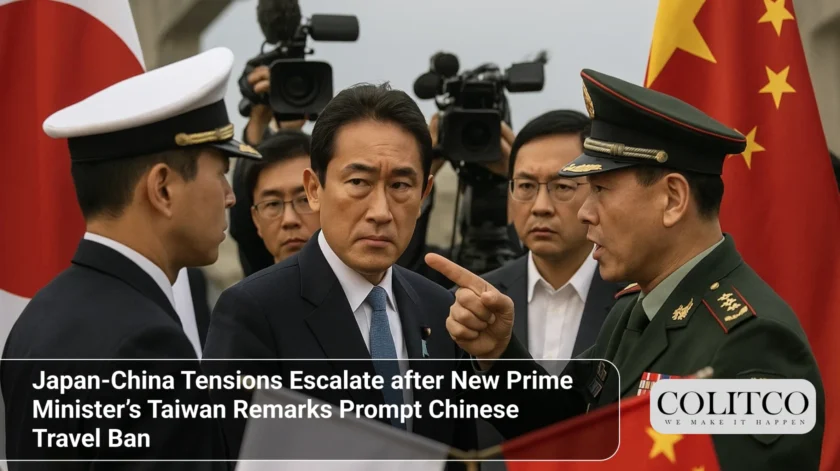The new Japanese Prime Minister, Sanae Takaichi, has sparked a diplomatic row with China. Her recent comments on Taiwan have triggered strong responses from Beijing. Ms. Takaichi stated that an attack on Taiwan would be “an existential threat” to Japan. She also suggested Japan might use military force if China attacked Taiwan.
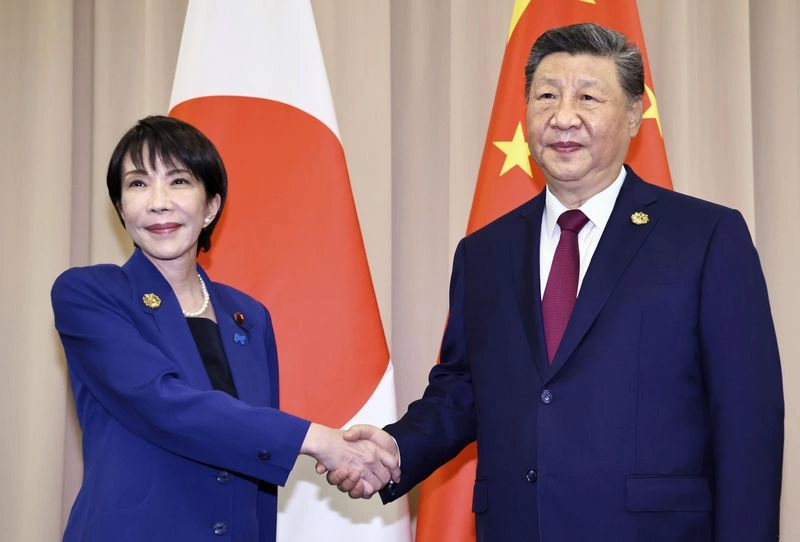
Chinese President Xi Jinping, right, shakes hands with Japanese Prime Minister Sanae Takaichi
China Issues Travel Warning
In retaliation, China has issued a travel advisory warning its citizens against travelling to Japan. The Chinese Embassy in Tokyo cited “significant risks to the personal safety and lives of Chinese citizens in Japan.” The warning came late Friday following escalating rhetoric between the two nations. Beijing labelled the prime minister’s remarks as “erroneous” and severely damaging the atmosphere for people-to-people exchanges.
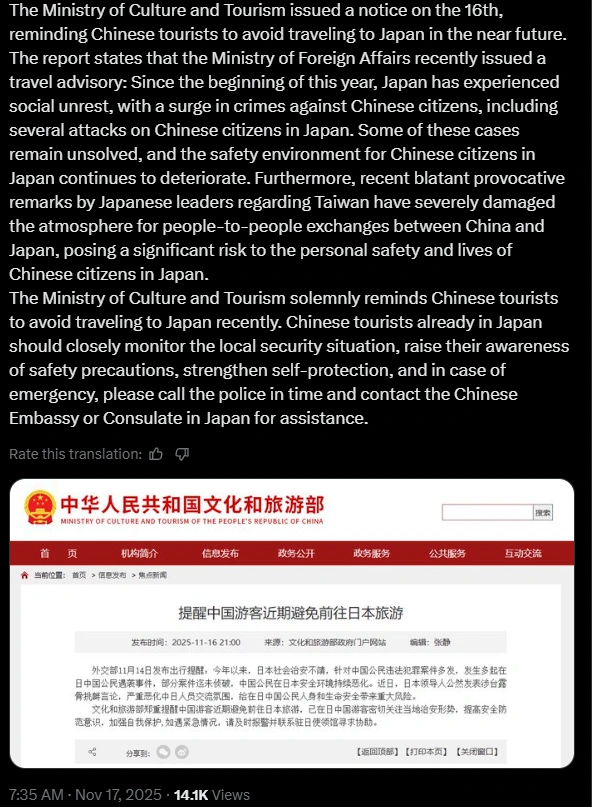
Statement by The Ministry of Culture and Tourism of China
Economic Impact on Japan
The travel ban threatens Japan’s tourism industry, heavily reliant on Chinese visitors. China’s advisory could cost Japan an estimated ¥2.2 trillion ($14.2 billion). This loss could pull down Japan’s GDP by 0.36 percentage points according to experts. Stocks related to tourism and retail in Japan have already fallen amid the tension.
Diplomatic Efforts to Ease the Dispute
Despite tensions, Japan is working to calm the dispute. The government plans to send a senior diplomat to China to explain the prime minister’s statements. Japan insists Ms. Takaichi’s comments do not deviate from the country’s position on Taiwan. Tokyo lodged protests against China’s warnings, calling for “appropriate measures” to de-escalate the situation.
Regional Security Concerns
The row reflects wider regional security concerns. Taiwan remains a highly sensitive topic in China-Japan relations. China claims Taiwan as its territory and has staged military drills nearby in recent years. Japan and the United States, though lacking formal diplomatic ties with Taiwan, support its military defence. Tokyo hosts several U.S. military bases, adding to the strategic complexity.
Strong Messaging from Both Sides
China’s consul general in Osaka made a viral social media post threatening Japan. The post said, “We have no choice but to cut off that dirty neck that has been lunged at us.” Japan promptly issued a diplomatic protest against the aggressive language. The Chinese post was later removed, but the back-and-forth continued throughout the week.
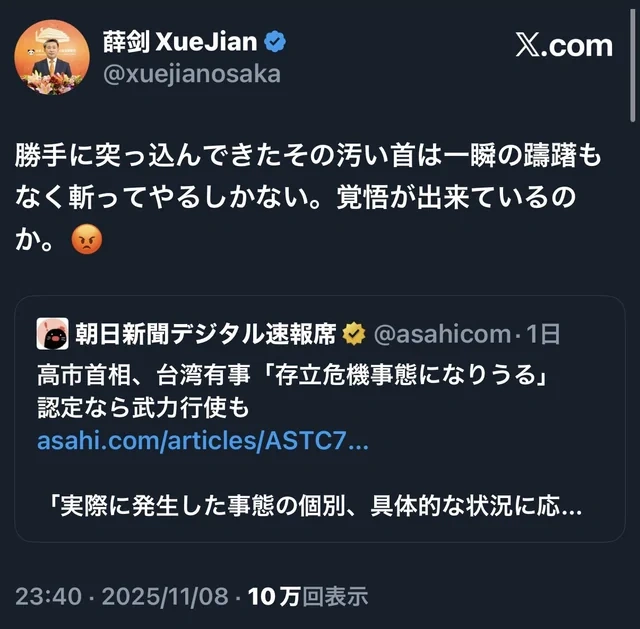
Threat message posted by China’s consul general in Osaka on X
Japan’s Military Posture Under New Leadership
Prime Minister Takaichi is a longtime supporter of Taiwan and views China as a growing threat. She has ordered plans to boost Japan’s military capabilities to counter these threats. Her suggestion that Japan could intervene militarily on Taiwan marked a break with previous Japanese precedent. This stance complicates an already fragile relationship with China.
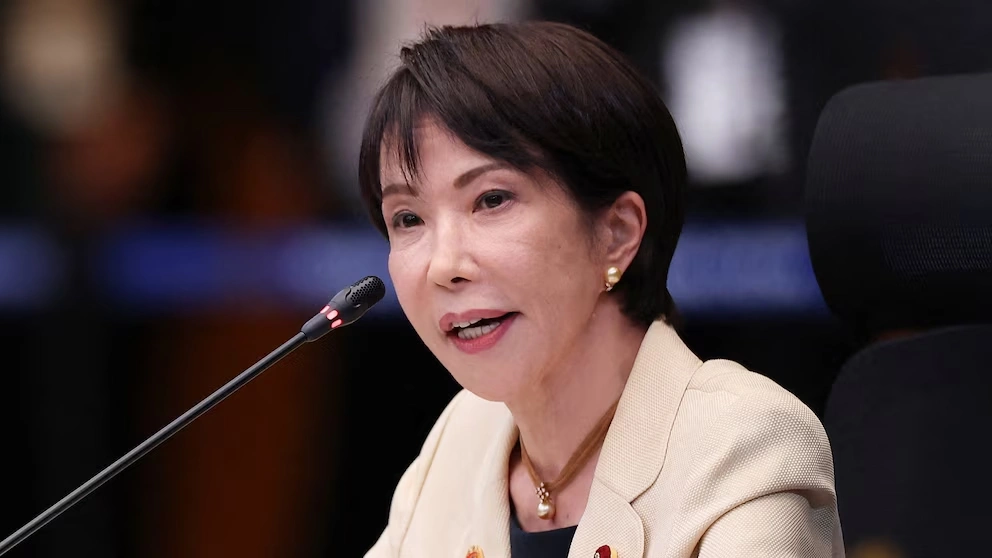
Prime Minister Takaichi is a longtime supporter of Taiwan
Impact on People-to-People Ties
China’s warning to its citizens highlights risks to people-to-people ties between the countries. Earlier this year, China had repeatedly advised its citizens to exercise caution in Japan. The latest advisory is stronger, urging avoidance of travel altogether. This could further damage relations at the grassroots level and reduce cultural and commercial exchanges.
Also Read: BlueScope Contractor Killed in Steel Beam Tragedy at Port Kembla Steelworks
Wider Regional Responses
The travel advisory has prompted other regional actors to issue cautious guidance. Hong Kong authorities warned residents to exercise caution when travelling to Japan or while in the country. Analysts warn that the diplomatic spat could destabilise the Asia-Pacific region if allowed to escalate. The dispute is the most serious flare-up since the 2012 Senkaku Islands dispute.
Economic and Political Prospects Ahead
China’s response also involves threats of economic sanctions targeting Japan. The escalation risks further damaging trade and investment ties between the world’s second and third-largest economies. Japan faces pressure to balance its alliance with the United States and its economic ties with China. How Tokyo manages this dispute will be closely watched globally.
Outlook and Ongoing Risk
The dispute between Japan and China centres on Prime Minister Sanae Takaichi’s remarks about Taiwan. Beijing views her comments as a direct challenge and threat. China’s travel ban and sharp rhetoric underline the seriousness of the conflict. Japan has taken diplomatic steps to ease tensions but stands firm on its security stance. The situation remains fragile and dynamic, with implications for regional peace and economic stability.

